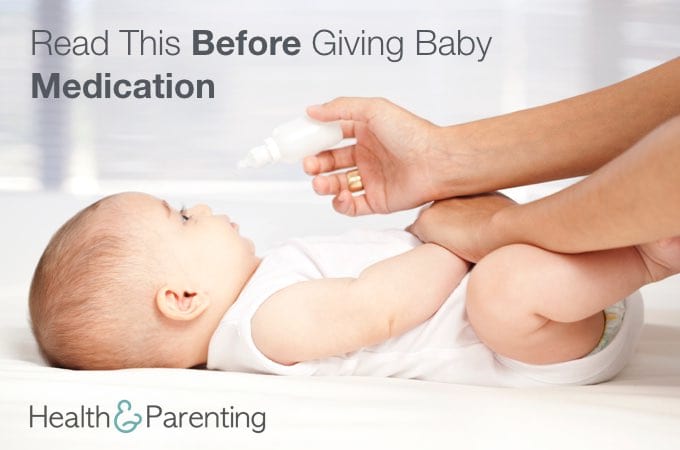No one likes to see their baby sick. The little coughs. The fever. The runny nose and tears. It’s just the saddest thing to witness, and it can make a parent feel so helpless.
But just like when you get sick, your baby may simply need to have a few days of relaxation in order to feel better. Some cuddles and lots of fluids to keep the healing process moving.
Of course, some illnesses require more than just rest to recover from. If your baby has a fever, or if the pediatrician has diagnosed an infection and prescribed antibiotics, you may find yourself needing to give your baby medication. But do you know how to do that correctly, and safely?
First things first: where are you storing the medication? All medication, whether purchased over the counter or with a prescription, should be kept high and out of reach of curious little hands. No matter how sick your baby may be, do not keep his or her medication where it could be grabbed by chubby little fingers in a burst of energy.
The other thing to pay attention to is storage instructions. Plenty of medications for infants and children require being kept cold. Failure to store those medications in the refrigerator could result in them not working correctly. Other baby medications might indicate they should be kept out of sunlight, so storing them in a closed, dark cabinet would be a good idea.
Next, you want to make sure you understand the dosing instructions, and that you have the tools (either a syringe or measuring cup) to measure the medication correctly before giving it to your baby. Double check each time you give the medication; accidentally overdosing could be dangerous.
Only give your baby medications that are recommended or prescribed by your pediatrician, and only for the reasons prescribed. For instance, if your pediatrician recommends an antihistamine syrup for an allergic reaction, don’t then use it a few weeks later to help your baby sleep.
Pay attention to expiration dates and safely dispose of medications once that expiration date arrives.
When actually administering medications, wash your hands and shake the bottle before measuring. Younger babies may have an easier time taking the medication with an oral syringe, while older babies or toddlers may do fine with a mini-measuring cup. Either way, allow your baby to drink slowly, and then wash whatever you used in warm water and gentle soap before the next dose.
Most children’s medications taste good and your baby likely won’t protest, but if he or she does, try swaddling them before giving the dose (so that they can’t fight too hard away from it). Then, gently squeeze his or her cheeks into a fishy face after administering the medication (to prevent it being spit back out) and softly stroke their chin to encourage swallowing.
Don’t worry, your baby will be on the mend in no time!
Written by Leah Campbell, infertility advocate, adoptive mama, writer and editor. Find me @sifinalaska on Twitter.
This information is not intended to replace the advice of a trained medical doctor. Health & Parenting Ltd disclaims any liability for the decisions you make based on this information, which is provided to you on a general informational basis only and not as a substitute for personalized medical advice. All contents copyright Health & Parenting Ltd 2016. All rights reserved.










